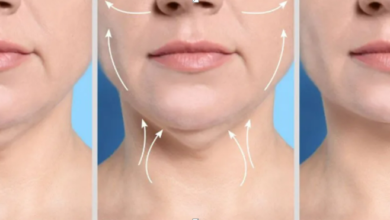Learn All About What Does a Cardiologist Do?

In a world where heart-related issues have become increasingly prevalent, the role of cardiologists is more critical than ever. This article delves into the cardiology domain, unraveling the responsibilities and significance of these heart specialists. If you’ve ever wondered what does a cardiologist do, you’re in the right place.
Exploring Cardiology
What Is Cardiology?
Cardiology is a medical specialty focused on vessel-related diseases. Cardiologists are the experts in this field.
Education and Training
To become a cardiologist, one must undergo extensive education and training. This typically involves completing medical school, followed by cardiology. The entire process can take up to 10-12 years.
Diagnosing Heart Conditions
Clinical Assessment
Cardiologists start by assessing a patient’s medical history, symptoms, and risk factors. They perform physical examinations to identify any signs of heart problems.
Utilizing Diagnostic Tests
Cardiologists employ a range of diagnostic tests, including electrocardiograms (ECGs), echocardiograms, stress tests, and angiograms, to pinpoint the specific issue affecting a patient’s heart.
Treatment Options
Medications
Prescribing medications to manage heart conditions, such as high blood pressure or arrhythmias, is a common practice among cardiologists.
Interventional Procedures
For more complex issues, cardiologists perform interventional procedures like angioplasty, stent placement, or catheter-based interventions to restore proper blood flow to the heart.
Surgery
In cases where surgical intervention is necessary, cardiologists collaborate with cardiovascular surgeons to perform open-heart surgeries like coronary artery bypass grafting (CABG).
Preventive Care
Lifestyle Recommendations
Cardiologists advise patients on making healthier lifestyle choices. This includes recommending dietary changes, exercise regimens, and smoking cessation to prevent heart problems.
Monitoring High-Risk Patients
Cardiologists play a pivotal role in monitoring patients at high risk of heart disease, ensuring they receive timely care to prevent complications.
Research and Innovation
Staying Informed
To provide the best care, cardiologists stay up-to-date with the latest advancements in cardiology by actively participating in research and attending conferences.
Advancing Treatment Methods
Research conducted by cardiologists contributes to the development of new treatment methods and technologies, ultimately benefiting patients. Read more…
Conclusion
Cardiologists are the unsung heroes in a world where heart health is paramount, working tirelessly to keep our hearts beating strong. Their role extends beyond diagnosing and treating heart conditions; it encompasses prevention, research, and innovation. By entrusting your heart’s health to a cardiologist, you are taking a step toward a healthier, longer life.
FAQs
1. When should I see a cardiologist?
It’s advisable to consult a cardiologist if you have risk factors for heart disease, such as high blood pressure, diabetes, or a family history of heart issues.
2. What happens during a cardiology appointment?
During a cardiology appointment, your cardiologist will review your medical history, perform necessary tests, and provide recommendations for further care or treatment.
3. Are all heart surgeries performed by cardiologists?
No, while cardiologists may perform some procedures like angioplasty, complex heart surgeries like heart transplants are typically carried out by cardiovascular surgeons.
4. How can I prevent heart disease?
Preventing heart disease involves maintaining a healthy lifestyle, including regular exercise, a balanced diet, and avoiding smoking and excessive alcohol consumption.
5. Is a cardiologist different from a general physician?
Yes, cardiologists are specialized doctors who focus exclusively on heart-related issues, while general physicians provide overall healthcare and refer patients to specialists as needed.




